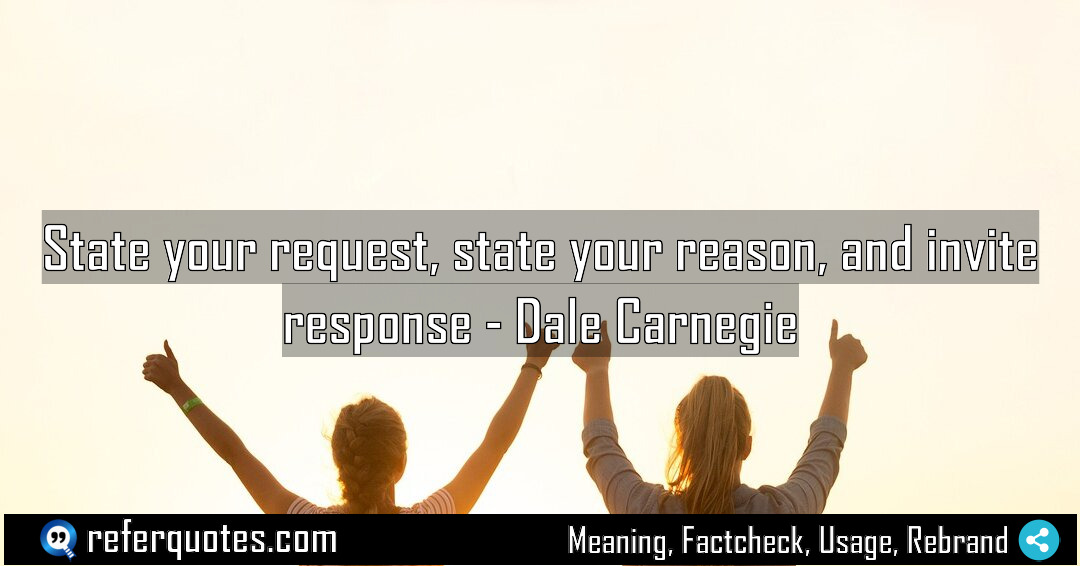You know that Dale Carnegie quote, “State your request, state your reason…”? It’s a brilliant little three-step framework for getting what you want without creating friction. It’s about replacing demands with a logical, respectful conversation. Honestly, it’s one of the most practical communication tools I’ve ever used.
Share Image Quote:Table of Contents
Meaning
At its core, this quote is a simple recipe for assertive, non-confrontational communication. It’s the antidote to just making demands or, worse, just complaining and hoping someone reads your mind.
Explanation
Let’s break it down. Most of us just lead with the request. “I need that report by 3 PM.” And that feels like an order, right? It puts people on the defensive. This framework forces you to add the ‘why’. “I need that report by 3 PM so I can include the data in the client presentation at 4.” See the difference? You’re not just a taskmaster; you’re a collaborator with a clear, logical reason. The final piece, “invite response,” is the masterstroke. It turns a monologue into a dialogue. “…Does that timeline work for you?” This shows respect for their workload and perspective, making them a willing participant instead of a reluctant order-taker. It’s a game-changer.
Quote Summary
| Context | Attributes |
|---|---|
| Original Language | English (3668) |
| Category | Business (233) |
| Topics | dialogue (12), requests (3), structure (6) |
| Literary Style | stepwise (4) |
| Emotion / Mood | general (55) |
| Overall Quote Score | 54 (15) |
Origin & Factcheck
This specific three-part structure comes directly from Dale Carnegie Training’s 2009 book, The 5 Essential People Skills, published in the United States. It’s a modern distillation of the principles from Carnegie’s classic, How to Win Friends and Influence People, so you’ll often see the spirit of it, if not the exact phrasing, attributed to him.
Attribution Summary
| Context | Attributes |
|---|---|
| Author | Dale Carnegie (408) |
| Source Type | Book (4032) |
| Source/Book Name | The 5 Essential People Skills: How to Assert Yourself, Listen to Others, and Resolve Conflicts (71) |
| Origin Timeperiod | 21st Century (1892) |
| Original Language | English (3668) |
| Authenticity | Verified (4032) |
Author Bio
Dale Carnegie(1888), an American writer received worldwide recognition for his influential books on relationship, leadership, and public speaking. His books and courses focus on human relations, and self confidence as the foundation for success. Among his timeless classics, the Dale Carnegie book list includes How to Win Friends and Influence People is the most influential which inspires millions even today for professional growth.
Official Website |Facebook | X | Instagram | YouTube |
Where is this quotation located?
| Quotation | State your request, state your reason, and invite response |
| Book Details | Publication Year/Date: 2008 ISBN/Unique Identifier: 9781416595489 (ISBN-13), 1416595487 (ISBN-10) Last edition. Number of pages: Common reprints ~256 pages |
| Where is it? | Chapter 16 The Assertive Ask, Unverified – Edition 2008, page range ~199–208 |
